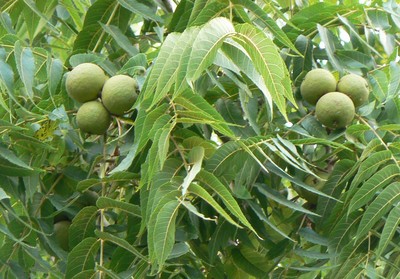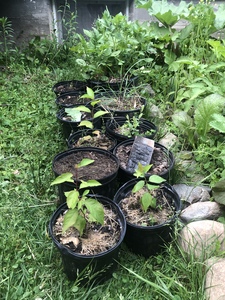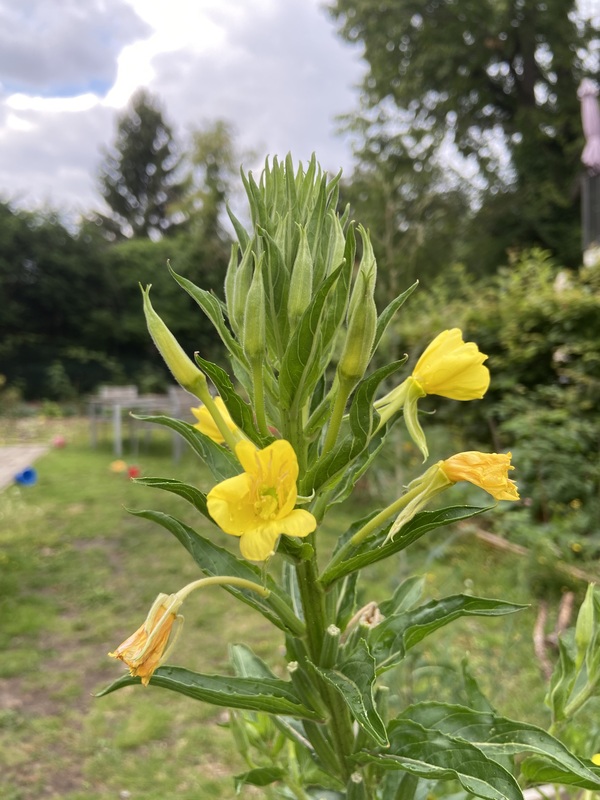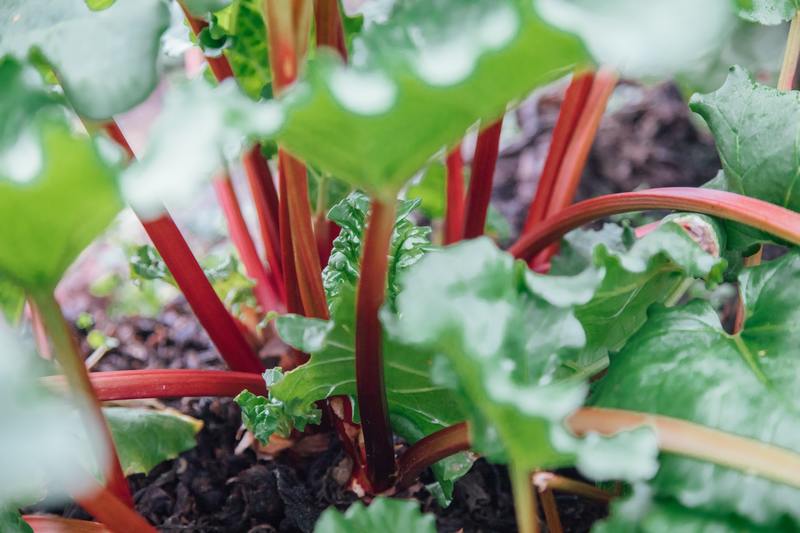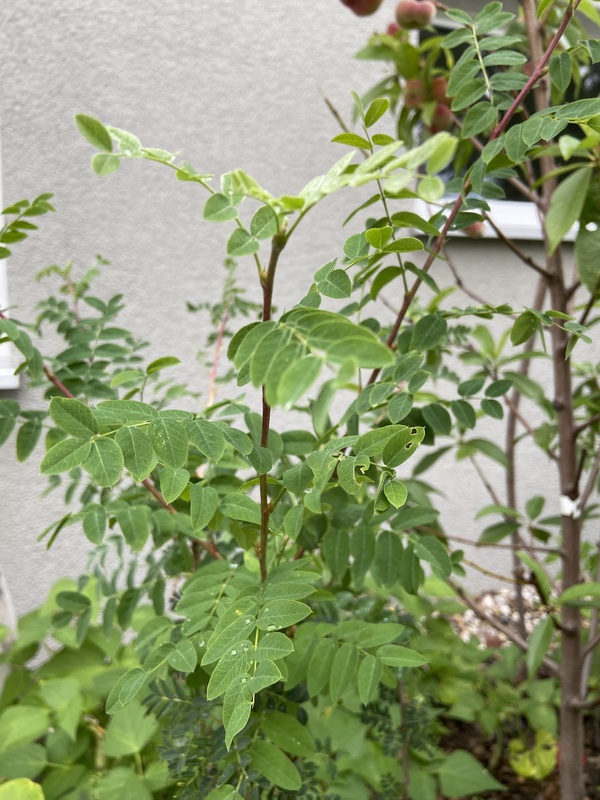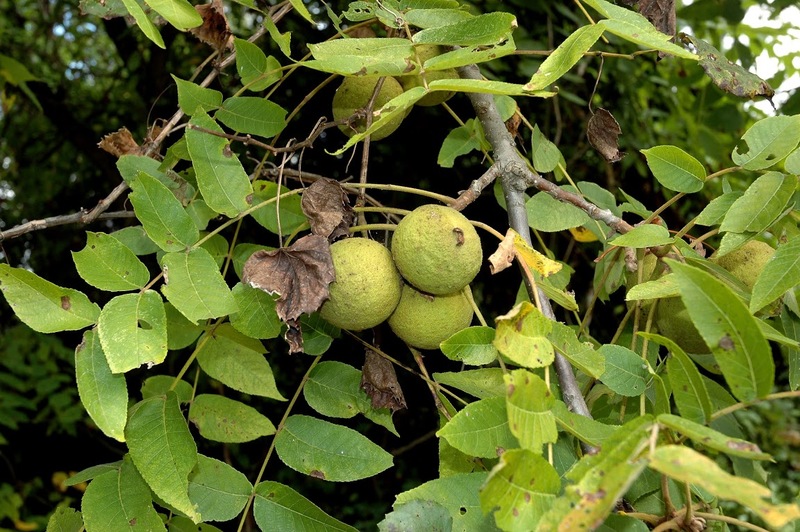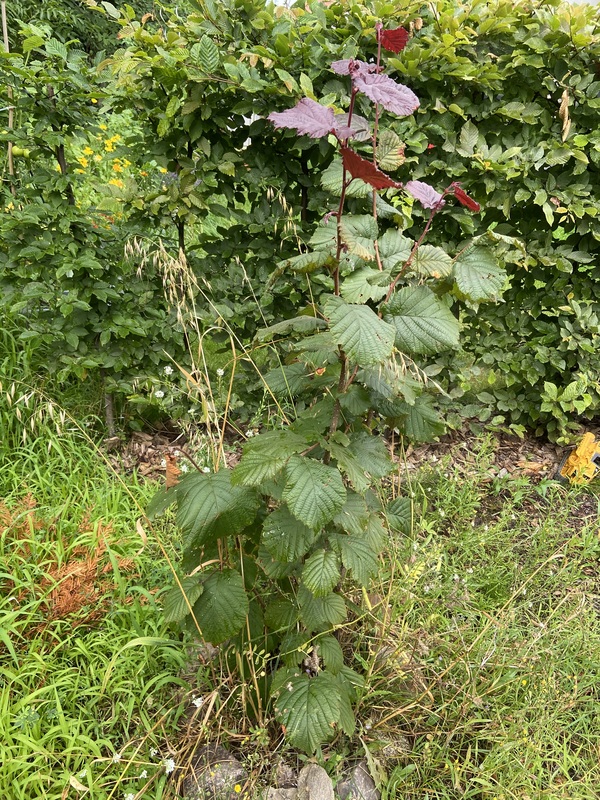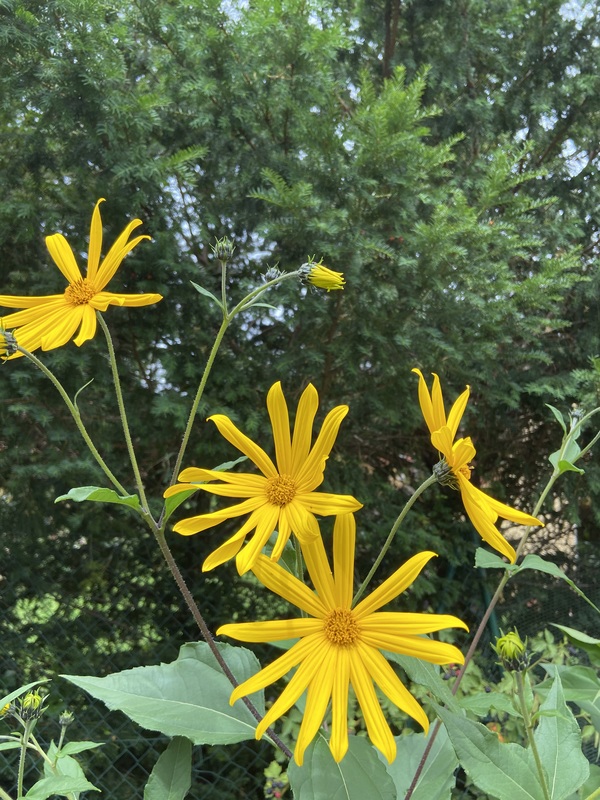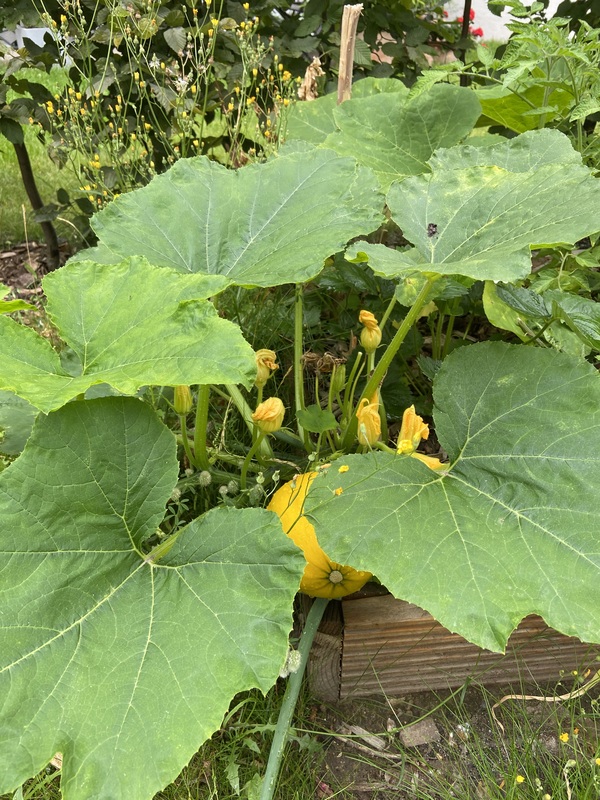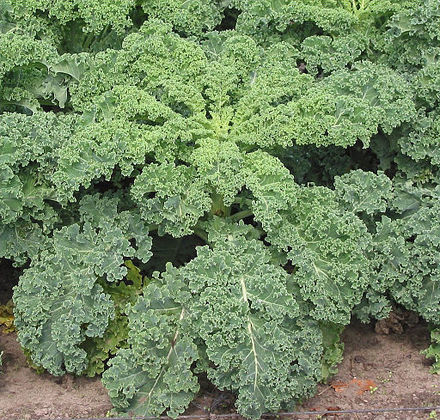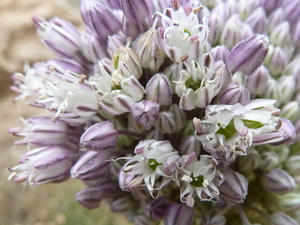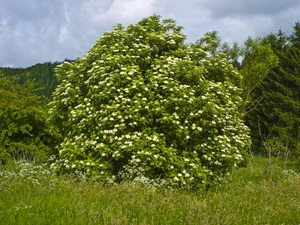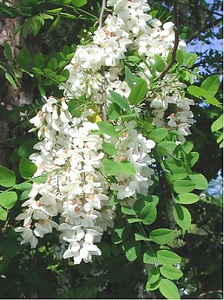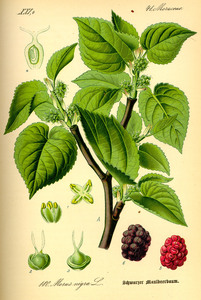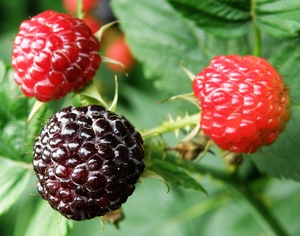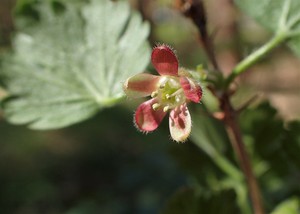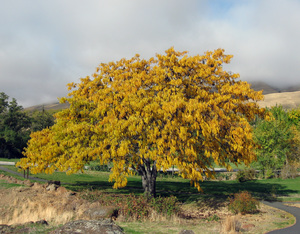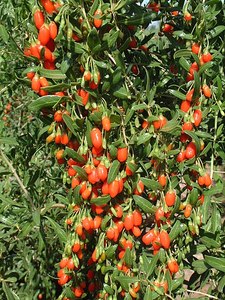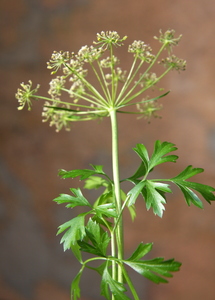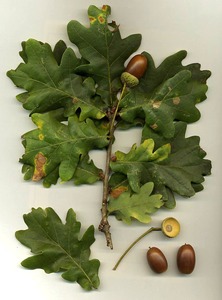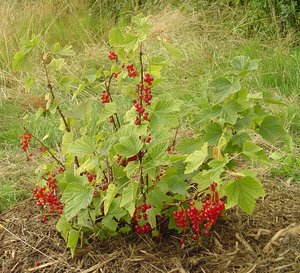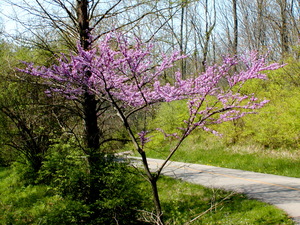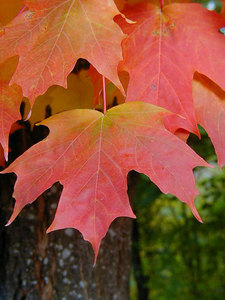Description
Black walnut is a large deciduous tree native to North America, growing up to 100 feet tall. It has a straight trunk with a rough, deeply furrowed bark, and a canopy of large, pinnately compound leaves with 15-23 lance-shaped leaflets. The tree produces large, greenish-white flowers in the spring, followed by large, spherical fruits containing a single, edible nut.
Black walnuts are prized for their distinctive, rich flavor and are commonly used in baking and cooking. The nuts can be harvested in the fall and can be stored in their shells for several months.
Black walnuts prefer deep, well-drained soils and can tolerate a wide range of soil pH levels. They can be grown successfully in full sun to partial shade, and they are relatively drought-tolerant once established. Black walnuts are not particularly winter hardy, and they can be damaged by heavy ice and snow.
In addition to their culinary uses, black walnuts have a number of other uses. The wood is highly prized for its durability and attractive grain, and is used in furniture making and other woodworking applications. The tree’s leaves, bark, and nuts are also used in herbal medicine for their astringent and tonic properties. Black walnuts are also valued for their ability to improve soil health, as their deep taproots help to break up compacted soils and their fallen leaves add organic matter to the soil.
Black walnuts are also an important food source for wildlife, including squirrels, birds, and deer. The tree provides shelter and nesting sites for a variety of animals, and its fallen leaves and nuts provide food for many species.
